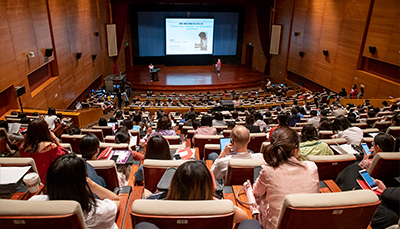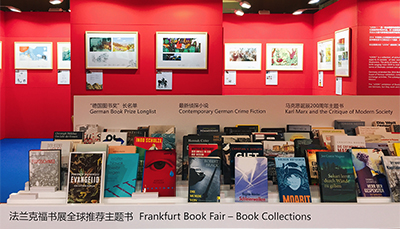Press
The Summary of Storydrive 2018

Interview with Chou Yih-fen
Storydrive, November 30. 1999
In the last 10 years, however, with picture books as the center of the circle, we’ve leveraged crossovers to increase the radius, so that we can draw a larger circle and do the things that some of the others (because there’s no profit) are unwilling or are unable to spare the effort to do. The process of crossovers is very slow. For instance, it took 10 years to complete Evergreen Nursery Rhymes: Mimi Listens to Folk Music, which won the Golden Melody Awards for Best Children’s Music Album; Yang Huan Forever, which was nominated for four Golden Melody Awards categories (Best Composition, Best Singing Performer, Best Performer, and Best Album); and Mimi’s exquisite animation, which caught the eye of an international European group with which we will develop in-depth cooperation.

Interview with Anna Holmwood
Storydrive, November 30. 1999
I don't underestimate the power of AI to transform the work of literary translators or agents -- I think that it will be a question of working with it rather than insisting that it has no place in our field. Ultimately, the goal of translating literature is to open up communication between cultures and it is often claimed that it is too expensive to translate books.
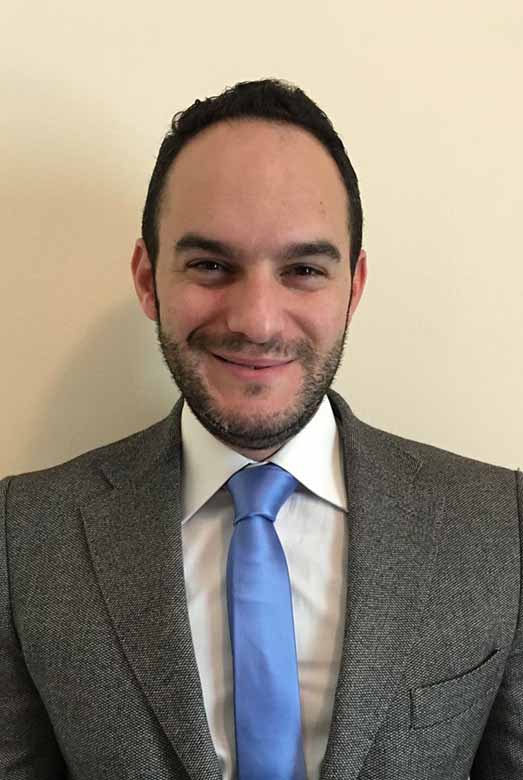
Interview with Tarek El Bolbol
Storydrive, November 30. 1999
The younger generation prefers “access” over “ownership”, with streaming falling under “access”, or pay to access. This is something that has impacted many industries around the World, such as Music (Spotify), TV (Netflix), Transport (Uber), and more – and we can already feel these changes in the Arab World. I believe this will eventually spill over to Audiobooks, but perhaps more slowly.

Interview with Zhu Yingchun
Storydrive, November 30. 1999
I’ve been telling stories about bugs and transformed birds to students in various universities, high schools and primary schools lately. Some people are asking me about whether “transformed birds” are real or fake.
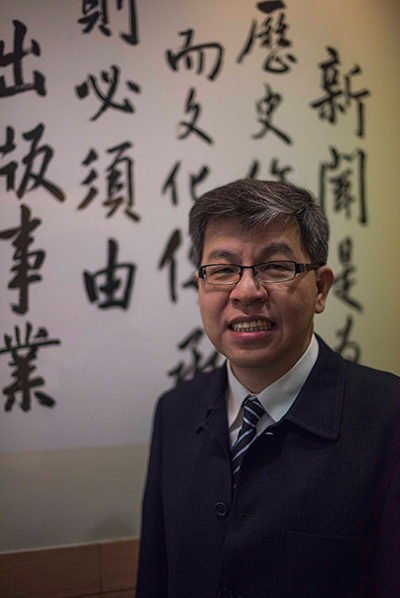
Interview with Chao Cheng-ming
Storydrive, November 30. 1999
I think Taiwan’s print book market has already fallen to its nadir! Then again, we thought this was the case two years ago, but it’s still on-going. Although the upward momentum of a handful of bestsellers is, at this time, faster and stronger than before in Taiwan, sales of most books are still on the downtrend, and have come to a virtual standstill. I think this downtrend has bottomed, but the prospects of a rebound is unlikely.

Interview with Dhawal Gusain
Storydrive, November 30. 1999
We are leaders in digital entertainment in India. TVF was one of the first-movers creating great storytelling on the web for young Indians - we were the first to create an Indian web-series, and one of the biggest players in the Indian branded content market. What sets TVF apart in the Indian viewers' minds is the emphasis we lay on creating relevant stories - our content doesn't expect the audience to suspend belief to the point that it stops making sense. We create stories that are true to life and strike a chord with our audiences.

Interview with Ren Hui
Storydrive, November 30. 1999
Ellabook is positioned as a children’s digital reading platform. Ellabook is the first animation book reading platform and animation book engine architect in the world. Compared to similar platforms or products in the market, Ellabook’s greatest advantage is that it not merely provides a new generation interactive animation book reading service that integrates animation, gaming, sound effects, interactive and other experiences, it also provides animation book production and distribution services for picture book authors and publishers.
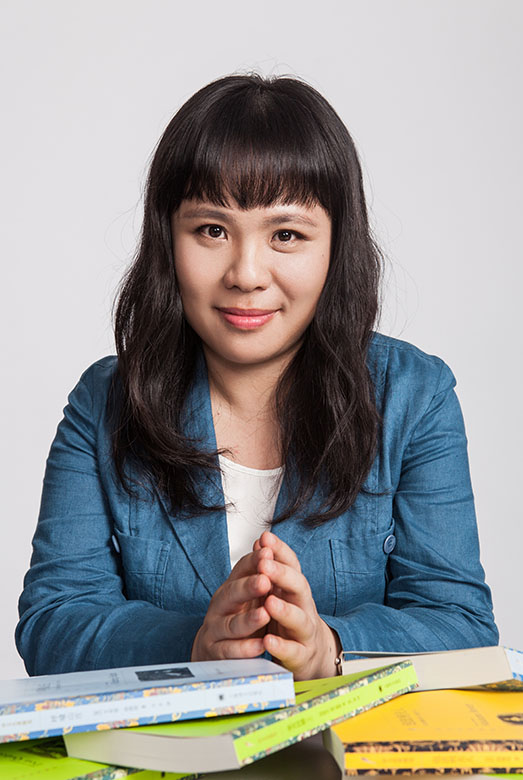
Interview with Huang Yuning
Storydrive, November 30. 1999
Q: Which among the Listening to A Book Everyday currently being produced is the most difficult to present? Are you able to explain a book clearly in 25 minutes? A: In fact, every book is difficult, with different difficulties. If difficulty were to be measured simply in terms of a novel’s volume and text, War and Peace and Moby Dick would be considered tough nuts to crack. The standard duration for interpreting each book is 25 to 30 minutes. Some, such as War and Peace, are extended versions, lasting about an hour or so. As for whether this book can be explained clearly during this period of time depends on the angle you take. First, to be sure, the effect of listening to a short audio program cannot be compared to reading each word and sentence - in fact, nothing can really replace actual reading. Second, let’s say metaphorically, the classic text is a big mansion. Our audio program offers you a few paths of entry, opens a few doors and windows for you, and gives you a map.

Interview with Anja von Kampen
Storydrive, November 30. 1999
Knietzsche doesn't have a specific age. Depending on the story, we sort of travel in time to visit him at different stages of his life. Sometimes he is a baby, sometimes he is an old man, but most of the time he is just a normal school kid. He does not have any special skills or powers, but he loves to think about the things that matter to him the most in a funny and smart way.

Interview with Huang Yikun
Storydrive, November 30. 1999
Jianshu is the largest writing platform in China. When I say “largest”, this is primarily in terms of the number of writers, the number of articles produced, and the number of users. Jianshu is currently offering in-depth and valuable services to young writers. From a certain perspective, it is China’s Wattpad. Unlike traditional online literary platforms, the scope of the works of Jianshu’s authors is broader, and includes genre literature in the form of traditional online literature, as well as business, science and technology, education and other non-fiction content.

Interview with Dr. Michael Roesler-Graichen, Börsenblatt
Storydrive, November 30. 1999
A shrinking number of readers are buying more books, and the average price of books has risen during the last years. Especially young readers and elderly people are interested in purchasing books. Due to the demographic change in Germany until 2030 people above the age of 60 will account for 35 percent of the whole population. This means there could possibly be an increasing potential for book buyers.
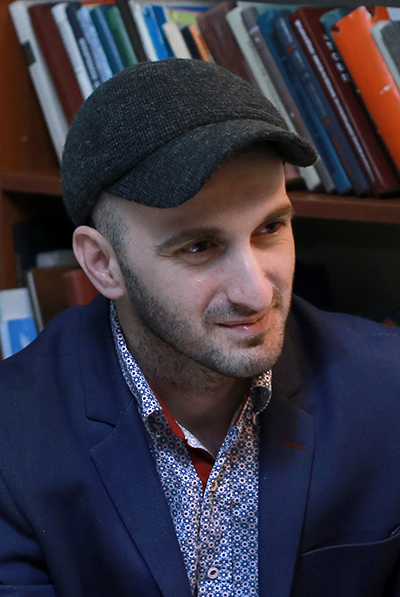
Interview with Giorgi Kekelidze, poet, writer from Georgia
Storydrive, November 30. 1999
My poetry is based on folklore and mythology. My prose tells the story of common people. There are about 100 publishing houses in Georgia, the publishing industry is a very fast developing field in the country and its cultural life. We are glad, that Georgia is a leader in the region.

Interview with Matthias Röder, managing director of Karajan Institute
Storydrive, November 30. 1999
Imagine that most experts believe that within 15 years we will have wide adoption of quantum computing. Because of the better efficiency of quantum algorithms we will see tremendous increases in our computational power, which in turn will have a huge impact on the types of learning systems we can build. If you then take into account that we will likely see an explosion of available data in music that will come from connected and smart instruments, concert halls and homes, it is very likely that we will have something that I call General Musical Artificial Intelligence. We will then have computer systems that can perform and create music with us and with each other. Creativity levels in society will be higher than ever and consequently we will have more innovation in society as a whole.

Interview with Caver Zhang, lecturer, illustrator, picture book author
Storydrive, November 30. 1999
I was very nervous when I was doing the illustration, to be honest. I wasn’t all that worried about technique. Rather, I was somewhat perplexed and hesitant about the way it is to be presented and how to handle the ambience. I then began to have a sense of the overall feel of it. When I consolidated the elements in my imagination, I realized there was great aura in Mr Yu’s poetry.

Interview with Gerald Cai, business partner & co-founder of MXRi
Storydrive, November 30. 1999
Research tells us that students learn best through multi-modal engagement. Using AR/VR, learners get to interact and visualise content in an interactive and immersive manner that improves understanding and knowledge retention. Essentially, any concepts that are Too Big ( Solar System), Too Small ( Human Cell), Too Complex ( Aircraft Engine), Too Far ( Ancient China) etc can be well presented using the AR/VR format.






